An accelerated online history degree program can help you start a career in history or its related fields.
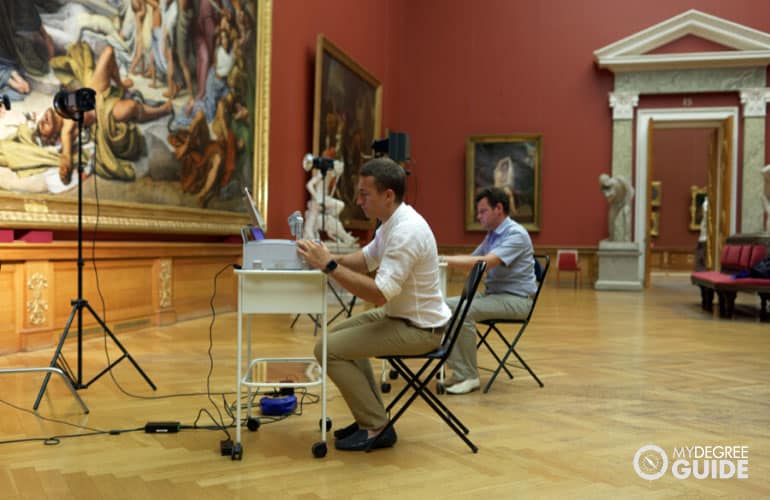
Our reality is shaped by historic events, such as colonialism, disease epidemics, immigration, wars, industrialization, culture shifts, and environmental phenomena.
Editorial Listing ShortCode:
You may take that historical understanding and apply it to situations today as a political scientist, economist, or teacher.
Types of Accelerated History Degree Programs
You can get a Bachelor of Arts in History or a Bachelor of Science in History, but your concentration is where you get to delve into the primary topic you’re interested in.
Some possible concentration options are:
- American History
- Middle Eastern History
- World History
- Art History
- Public History
- Military History
- Political History
- History of Asia
- Church History
Although your program will be influenced by the concentration you choose, your history degree needs to be well-rounded and will likely include introductory history classes to cover most of the timeframes in history.
Courses for an Accelerated History Degree Program
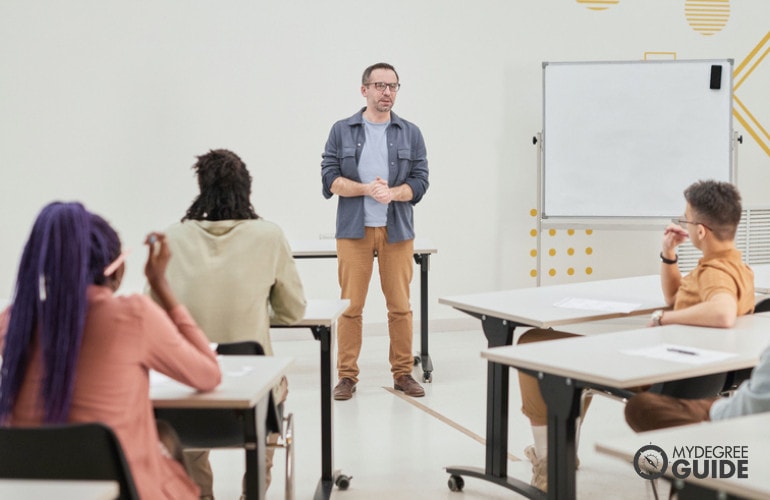
One purpose of a history degree program is to train you to be a competent and strong lifetime learner.
The skills that can be learned in a history degree program are not limited to just one career. It can help you learn how to examine historic events, think critically, ask big questions, and propose solutions for current problems based on past events.
Your history classes might cover eras and cultures from Europe, the United States, Asia, Africa, and more.
Classes vary from program to program, but some possible classes are:
- The Dawn of Europe: Antiquity to the Renaissance
- The Emerging United States to 1865
- Magic, Science, and Religion
- Europe Between Renaissance and Revolution
- Catastrophe & Memory
- Media and Politics in Modern America
- The Making of Modern Britain
- The History of Imperial Russia
- The Twentieth-Century American Presidency
- Women and Gender in US History
If you are excited about that list of classes, you might be a history major in the making! These classes have the potential to not only teach you about history but also to prepare you for a great career.
Why Major in History?
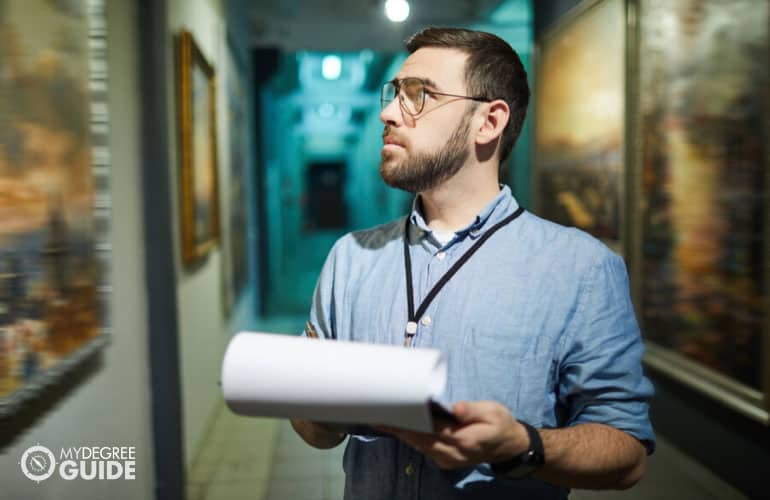
If you love history, earning a degree in history may be a great choice for you. Many history majors study what they love and either pursue an online master’s degree in history or take a double major in another field, such as business, economics, education, or management, to increase their odds of getting a job.
Pursuing a history degree can help prepare you for our rapidly changing world and economy. It can teach you how to think critically, write clearly, read and analyze from a critical perspective, and be an effective communicator
These are all skills that can help you gain a satisfying and lucrative career!
Many history majors go on to pursue careers as:
- Lawyers
- Teachers
- Professors
- Doctors
- Biochemists
Or in fields like:
- Library science
- Business
- Museum studies
- Archeology
- International relations
- Management
- Politics
Seven past US presidents held degrees in history, including Franklin D. Roosevelt, John F. Kennedy, and Theodore Roosevelt.
There are even some famous comedians and actors that love history. Steve Carell, Conan O’Brien, Larry David, and Katharine Hepburn all started out with history degrees (University of Illinois Urbana-Champaign, Famous History Majors).
Editorial Listing ShortCode:
Careers with an Accelerated History Degree
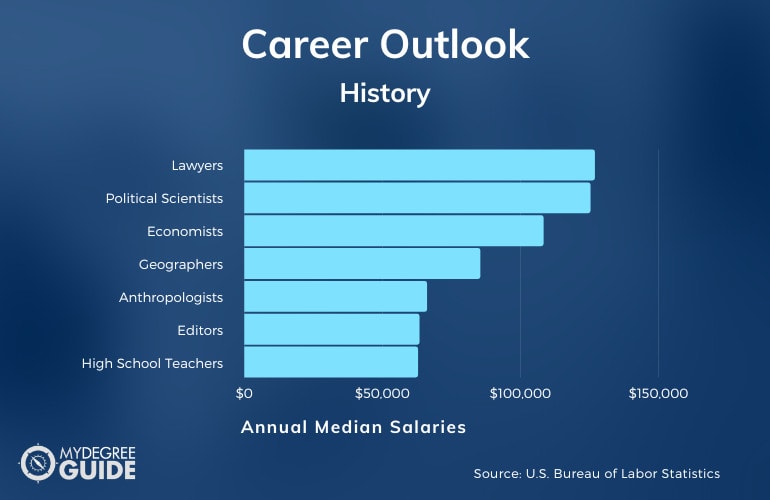
According to a report from Georgetown University’s Center on Education and the Workforce, graduates from history degree programs typically earn higher average salaries than other humanities majors. Most of these history grads end up working in management positions.
A survey conducted by Vanderbilt reported that over 30% of history grads work in business and 23% work for corporations.
Earning a history degree does not mean your only option is to be a history professor! The strong analytical and communication skills you can learn while earning your degree can help make you a good fit for many different roles.
If you are interested in the history of business and capitalism, you might have a career in marketing. Martha Stewart, for example, holds a degree in history. In fact, careers in media, such as journalism, writing, and editing, are popular examples of what you can do with a history degree.
According to the Bureau of Labor Statistics, some careers in the field of history include:
| Career | Annual Median Salary |
| Lawyers | $126,930 |
| Political Scientists | $125,350 |
| Economists | $108,350 |
| Geographers | $85,430 |
| Anthropologists | $66,130 |
| Editors | $63,400 |
| High School Teachers | $62,870 |
| Public Relations Specialists | $62,810 |
| Museum Curators | $56,990 |
| Journalists | $49,300 |
Depending on the employer, you may need additional education or work experience to qualify for some of these jobs.
The Benefits of an Online Accelerated History Degree Program

Taking online accelerated classes offers three main advantages over traditional on-campus courses.
You Can Start When You Want
Many online history degree programs have start dates every month. You don’t have to wait until next semester to start!
You Can Move through Each Class More Quickly
A traditional college class is 16 weeks long and meets 2 or 3 times a week. Accelerated online classes are on average only 8 weeks long.
You Don’t Have to Change Your Schedule
Many online classes do not have scheduled times to meet. You also don’t have to worry about commuting either. You may do your coursework wherever you want, according to your own schedule.
History Degree Accreditation
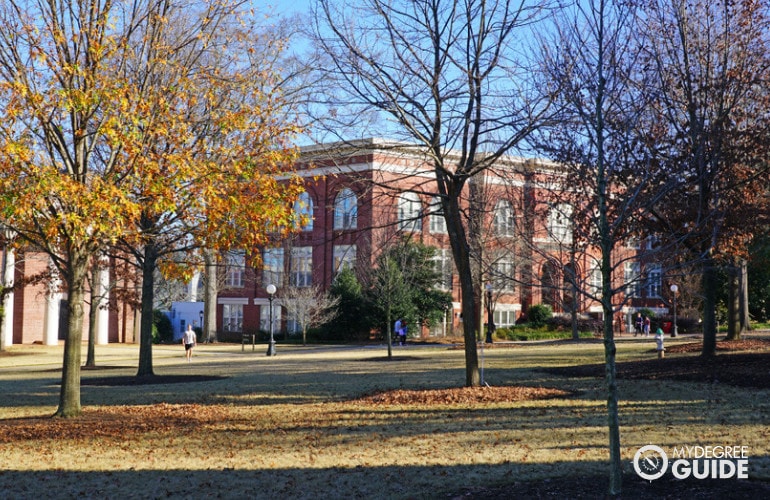
Regional accreditation means that your school has gone through a lengthy and intensive review of the curriculum, faculty, and research that is used in your degree. Schools can be regionally accredited by one of these six boards:
- Higher Learning Commission (HLC)
- Middle States Commission on Higher Education (MSCHE)
- New England Commission of Higher Education (NECHE)
- Northwest Commission on Colleges and Universities (NWCCU)
- Southern Association of Colleges and Schools Commission on Colleges (SACSCOC)
- WASC Senior College and University Commission (WSCUC)
If your school is regionally accredited, you can be more confident that your history degree will be recognized and accepted when you apply to graduate school or to a job that requires a bachelor’s degree.
Financial Aid

The steps for getting financial aid when taking classes in the fastest online degree programs are no different than when taking classes in person. You can fill out the Free Application for Federal Student Aid (FAFSA) to get a report of how much money you may qualify for in grants and affordable loans.
You can also look into:
- Funds available from your state government
- Scholarships from the school you plan to attend
- Scholarships from private organizations and businesses
- Tuition assistance or reimbursement from your employer
Paying for college is expensive, but these funding sources might help lower your final out-of-pocket expenses.
Dive Into the Story!
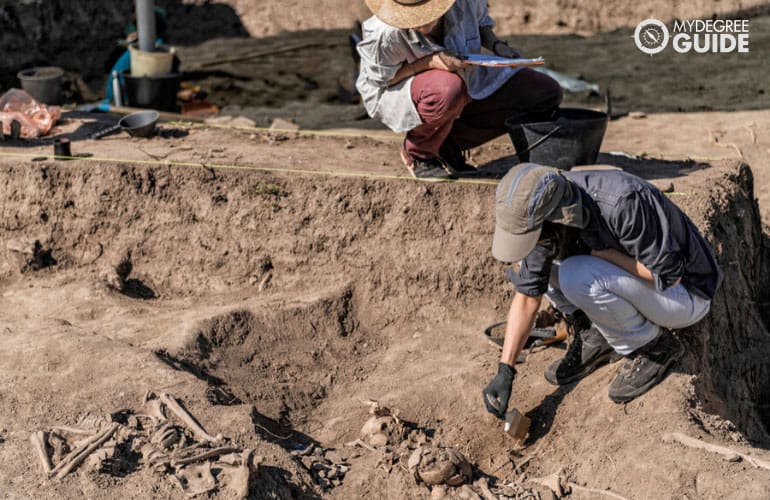
You don’t have to choose between your love of history and getting a practical degree. With online college classes, you can enjoy taking history courses that pique your interest and perhaps even declare a second major to give yourself more job opportunities, all from the comfort of your own home.
With year-round accelerated classes, you might even be able to complete your degree within two years and be ready to pursue your dream job.

